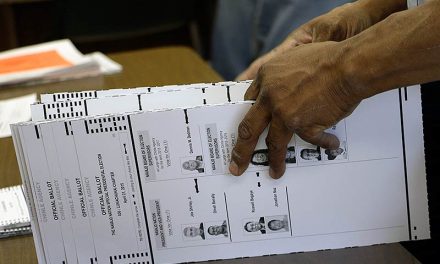
NM’s legal marijuana leads to Diné concerns
By Colleen Keane
Special to the Times
ALBUQUERQUE
Last July, the state of New Mexico legalized the sale of recreational marijuana. On Jan. 1, new rules for the manufacture, sale and transport of cannabis went into effect.
The rules set business operations in motion. There are more than 300 applications for licenses across the state, according to the Associated Press.
Sales are expected to start April 1.
The new state law allows a person who is 21 or older to possess up to 2 ounces of marijuana outside of their home.
While the law legalizes marijuana in New Mexico, cannabis is illegal within the boundaries of the Navajo Nation, including in Arizona, Utah and New Mexico.
Navajo Nation strengthened its law two years ago.
Amending the Navajo Nation Criminal Code through a Council resolution (CS-76-20), the legal definition of marijuana was clarified, and violators would forfeit the drug, property, their jobs, and elected offices.
Still, with marijuana legalized by the state, some Navajo residents living near private land where cannabis shops might pop up are worried about the impact on their families and communities.
Delegate Daniel Tso (Littlewater/Pueblo Pintado/Torreon/Whitehorse Lake/Baca-Brewitt/Casamero Lake/Ojo Encino/Counselor) talked to several citizens about their concerns.
“I have constituents who are in their fifties, sixties, and seventies who are really worried about the possibility of pot shops springing up on or near the eastern area of the Navajo Nation,” he said.
“They already see the issues associated with the illegal marijuana being used in conjunction with methamphetamine, fentanyl and alcohol,” he said.
Educator Hotona Secatero, Diné, said, “We already have a drug problem. Having access to recreational marijuana may encourage drug use that leads to other illegal substances. It can be the gateway to other drugs.”
This is especially true for youth, according to research reports.
Secatero also said there were positive impacts to the legalization of marijuana. For example, medicinal marijuana.
Health advocate Gloria Begay said she sees pros and cons. Legalizing marijuana will bring money into the state but at a cost.
She expressed concern about the rise in crime, remarking how, according to news reports, crime rose in Colorado after the state legalized marijuana in 2012.
She’s worried it will happen in the city and near tribal communities, creating even more strain on city and tribal police forces, which are already spread too thin.
“Albuquerque crime is bad enough,” she said, “and I’ve been listening to chapter meetings and Council meetings these past few months. The crime situation (in our communities) is scary.
“It is really troublesome,” Begay added.
Tso said he and other delegates are especially concerned about the sale of recreational marijuana at convenience stores in the checkerboard area where private and tribal lands bump up to each other with different jurisdictions.
“There are a lot of convenience stores (on private land),” he said. “Those stores could get a license and dispense marijuana products.”
He worries that young children will get ahold of it.
“In the bigger picture, it’s been demonstrated through science that when pre-teens (and teens) use marijuana, it slows development,” he said.
As a solution, Tso said efforts have begun in Eastern Navajo to cross-commission Sandoval County police to back up Navajo Nation Police.
“Cross-commissioning of the officers works,” Tso said.
A request has also been made to the Sandoval County Police Department and the Navajo Nation to reinstitute the Drug Task Force, said Tso.
“Sandoval County Sheriff Jesse James Casaus has agreed to participate in that task force,” Tso said. “They will be checking out our citizen complaints.”
To demonstrate an increased police presence over the holidays, Sandoval County conducted a toy drive for the Torreon Chapter.
Getting caught by police with an amount exceeding the legal limit – 2 ounces – in public is a misdemeanor. Violators face up to 364 days in jail and a fine of up to $1,000.
New Mexico law allows residents to grow marijuana as well. Each person aged 21 or older may have six mature marijuana plants and six immature marijuana plants.
However, the maximum number of mature plants allowable in a household is 12, and exceeding that limit is a fourth-degree felony.
The penalty for a fourth-degree felony in New Mexico is a maximum prison term of 18 months and a fine of up to $5,000, according to a legal resource.
President Jonathan Nez’s office did not respond to requests for comment.
There are more consequences for those in possession of any amount of cannabis on Navajo lands as they cross onto tribal lands where it is illegal.
“With this resolution (CS-76-20), we are sending a clear message to all Navajo Nation residents and visitors, officials, and those in elected office that you will be held accountable for possessing, manufacturing, transporting, selling, using, trading, and delivering marijuana on the Navajo Nation,” Nez said on Oct. 5, 2020.
“We will continue to stand up for our communities against those who attempt to circumvent and manipulate our laws,” Nez added.
Tso said, “Having it available at the border towns really makes it concerning. To have it closer to home is concerning.”
Information: opvp.navajo-nsn.gov or newmexicocriminallaw.com








 Highway 264,
Highway 264, I-40, WB @ Winslow
I-40, WB @ Winslow